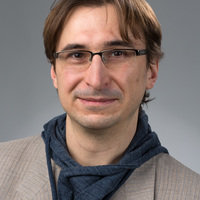Combining history of science and a history of universities with the new imperial history, Universities in Imperial Austria 1848–1918: A Social History of a Multilingual Space by Jan Surman analyzes the practice of scholarly migration and... more
Combining history of science and a history of universities with the new imperial history, Universities in Imperial Austria 1848–1918: A Social History of a Multilingual Space by Jan Surman analyzes the practice of scholarly migration and its lasting influence on the intellectual output in the Austrian part of the Habsburg Empire.
The Habsburg Empire and its successor states were home to developments that shaped Central Europe's scholarship well into the twentieth century. Universities became centers of both state- and nation-building, as well as of confessional resistance, placing scholars if not in conflict, then certainly at odds with the neutral international orientation of academe.
By going beyond national narratives, Surman reveals the Empire as a state with institutions divided by language but united by legislation, practices, and other influences. Such an approach allows readers a better view to how scholars turned gradually away from state-centric discourse to form distinct language communities after 1867; these influences affected scholarship, and by examining the scholarly record, Surman tracks the turn.
Drawing on archives in Austria, the Czech Republic, Poland, and Ukraine, Surman analyzes the careers of several thousand scholars from the faculties of philosophy and medicine of a number of Habsburg universities, thus covering various moments in the history of the Empire for the widest view. Universities in Imperial Austria 1848–1918 focuses on the tension between the political and linguistic spaces scholars occupied and shows that this tension did not lead to a gradual dissolution of the monarchy’s academia, but rather to an ongoing development of new strategies to cope with the cultural and linguistic multitude.
The Habsburg Empire and its successor states were home to developments that shaped Central Europe's scholarship well into the twentieth century. Universities became centers of both state- and nation-building, as well as of confessional resistance, placing scholars if not in conflict, then certainly at odds with the neutral international orientation of academe.
By going beyond national narratives, Surman reveals the Empire as a state with institutions divided by language but united by legislation, practices, and other influences. Such an approach allows readers a better view to how scholars turned gradually away from state-centric discourse to form distinct language communities after 1867; these influences affected scholarship, and by examining the scholarly record, Surman tracks the turn.
Drawing on archives in Austria, the Czech Republic, Poland, and Ukraine, Surman analyzes the careers of several thousand scholars from the faculties of philosophy and medicine of a number of Habsburg universities, thus covering various moments in the history of the Empire for the widest view. Universities in Imperial Austria 1848–1918 focuses on the tension between the political and linguistic spaces scholars occupied and shows that this tension did not lead to a gradual dissolution of the monarchy’s academia, but rather to an ongoing development of new strategies to cope with the cultural and linguistic multitude.
Research Interests: History, Czech History, History of Education, Polish History, History of Science, and 11 moreImperial History, Nationalism, Central European history, Habsburg Studies, Transnational migration, 19th Century (History), History of Nationalism and Nation-Building, Central and Eastern Europe, Austrian History, Ukrainian History, and University History
Heft 4/2016 der Zeitschrift für Ostmitteleuropa-Forschung
Research Interests:
Language is the most essential medium of scientific activity. Many historians, sociologists and science studies scholars have investigated scientific language for this reason, but only few have examined those cases where language itself... more
Language is the most essential medium of scientific activity. Many historians, sociologists and science studies scholars have investigated scientific language for this reason, but only few have examined those cases where language itself has become an object of scientific discussion. Over the centuries scientists have sought to control, refine and engineer language for various epistemological, communicative and nationalistic purposes. This book seeks to explore cases in the history of science in which questions or concerns with language have bubbled to the surface in scientific discourse. This opens a window into the particular ways in which scientists have conceived of and construed language as the central medium of their activity across different cultural contexts and places, and the clashes and tensions that have manifested their many attempts to engineer it to both preserve and enrich its function. The subject of language draws out many topics that have mostly been neglected in the history of science, such as the connection between the emergence of national languages and the development of science within national settings, and allows us to connect together historical episodes from many understudied cultural and linguistic venues such as Eastern European and medieval Hebrew science.
Research Interests:
Czym jest i po co epistemologia historyczna? To pytanie stawia sobie w książce jeden z najważniejszych autorów tego podejścia do historii nauki, Hans-Jörg Rheinberger. W pierwszej części autor przedstawia historyzowanie epistemologii od... more
Czym jest i po co epistemologia historyczna? To pytanie stawia sobie w książce jeden z najważniejszych autorów tego podejścia do historii nauki, Hans-Jörg Rheinberger. W pierwszej części autor przedstawia historyzowanie epistemologii od Emila Du Bois-Reymonda poprzez Michela Foucaulta po Bruno Latoura. W drugiej egzemplifikuje swoje podejście do epistemologii historycznej na przykładach z historii biologii. Najważniejsze pojęcia tej pracy to system eksperymentalny i rzeczy epistemiczne, a tematy sięgają od mikrostruktur eksperymentów z tumorem kur po typologie wizualizacji w naukach przyrodniczych.
